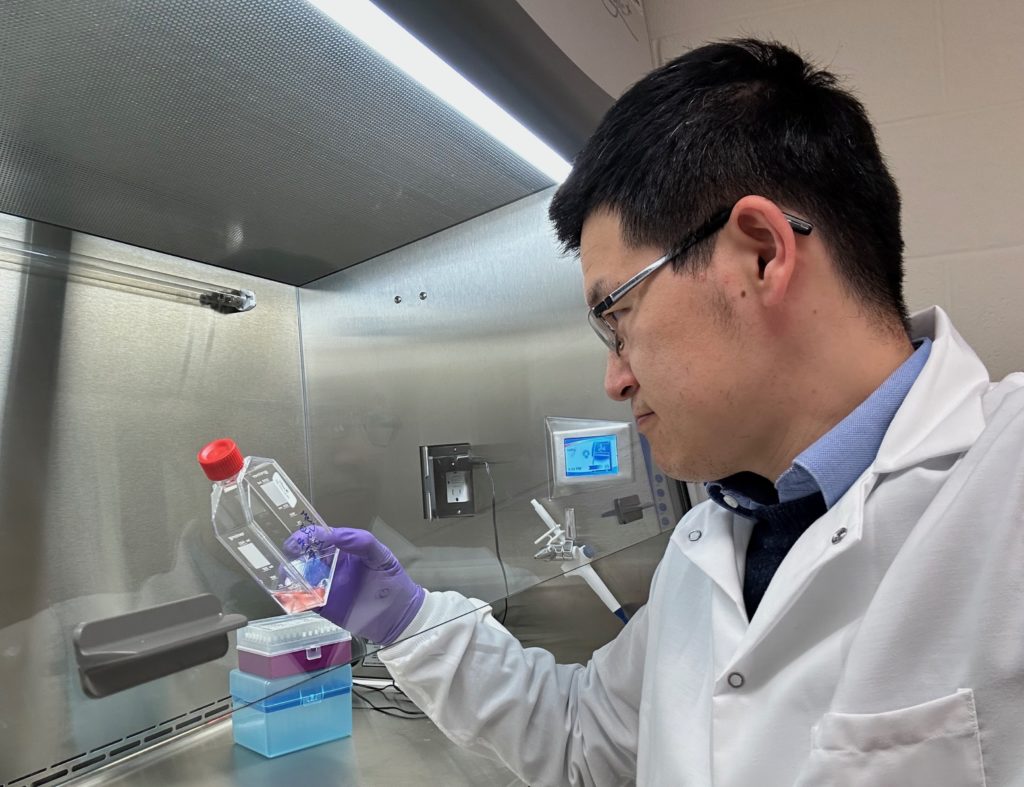Eugene, Ore.; March 22, 2017 – In December 2015, Phil and Penny Knight pledged a gift of $10 million over ten years to support the David B. Frohnmayer Scientific Research Fund, a dedicated fund under the umbrella of the Fanconi Anemia Research Fund (FARF). A major focus of this initiative is to prevent and cure the cancers that are now a primary cause of death in adults with Fanconi anemia (FA). The Knight gift is a cornerstone of FARF’s campaign to accelerate the pace of clinical trials, drug testing, gene therapies and more effective treatments for children and adults with FA. The goal is to reduce the time it takes to move research into practice.
“This is an exciting time for FA research,” said Dr. Brad Preston, FARF’s Scientific Director. “The Knight gift now allows us to support clinical studies to help children and adults with FA.”
In the last year, five projects have been funded through the Knight gift, including the first stage of a clinical trial to prevent or delay bone marrow failure and leukemia in FA.
The Phase I trial will be conducted under the direction of Dr. Akiko Shimamura at the Dana-Farber/Boston Children’s Cancer and Blood Disorders Center. This will be the first clinical trial that repurposes an established, safe drug – metformin, used for Diabetes – to treat FA. If successful, the impact on FA patients could be very high.
Dr. Eunike Velleuer of Heinrich-Heine University and Ralf Dietrich of the German FA Support Group are using non-invasive brush biopsies to diagnose early oral cancer. In 2016, they examined the mouths of 286 people with FA and found four with cancer and three with pre-cancerous lesions. None of these cancers was detected by the patients’ treating physicians. Thus, the diagnosis of cancer would have been delayed, perhaps fatally, if Dr. Velleuer and Dietrich had not conducted their examinations as part of this funded project to reduce the burden of squamous cell carcinoma in Fanconi anemia.
Dr. Wei Tong’s laboratory at the University of Pennsylvania studies the role of a protein
called “Lnk” in regulating stem cell expansion. This newly funded project is based on Dr. Tong’s novel finding that Lnk deficiency restores blood cell function to normal levels in FA mutant mice. Her research team will determine if suppressing Lnk can similarly improve blood cell function in FA patients.
Lastly, FARF is supporting two new, exciting gene therapy projects. These projects use cutting edge technologies to replace FA genes with normal genes in a process called “gene editing”. Dr. Jacob Corn and his team at the University of California-Berkeley recently pioneered a method to repair sickle cell genes; they will now harness this method to repair FA genes. Drs. Peter Glazer and Gary Kupfer at Yale University will also explore the use of nanoparticles to deliver the repaired genes to FA patients by simple injection. Both projects will focus initially on repairing FA genes in the bone marrow. If successful, this will prevent bone marrow failure and leukemia.
“None of these projects would be possible without the generous support of Phil and Penny Knight”, Preston said.




